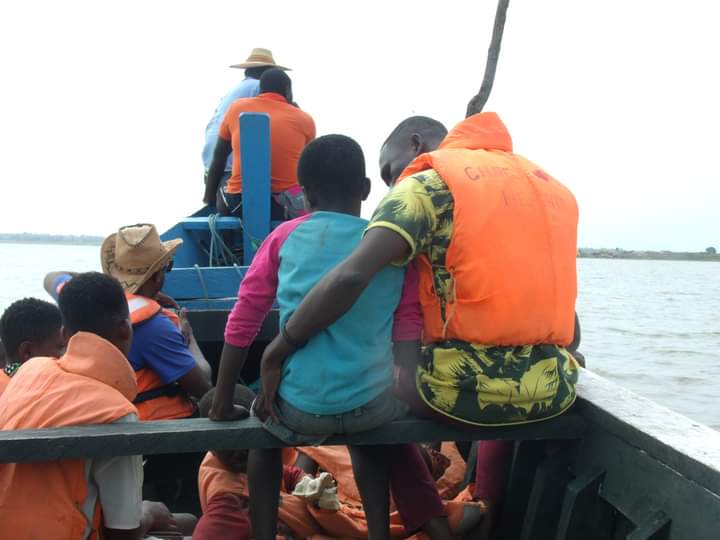A total of 153 children trafficked into forced labour and domestic servitude in Ghana have been rescued.
The victims comprise of 106 boys and 47 girls, between the ages of six and 17 from 12 out of the 16 regions of Ghana.
This brings to over 1,700 the total number of children rescued by Challenging Heights, an NGO in fishing communities in Ghana since its establishment in 2003.
The data from Challenging Heights also showed that out of 10 children on the Volta lake, six of them were between the ages of five and 11, as opposed to five years ago when six out of ten children were between the ages of eight and 17.
President of Challenging Heights James Kofi Annan is particularly worried that the global community might not achieve the 2030 target of elimination of child trafficking and modern slavery in all its forms.
“The COVID 19 pandemic has eroded the gains made in the sector, and worsened the vulnerabilities of women and children, making it difficult to predict when communities could rebuild resilience against slavery.
Challenging Heights has also found evidence to suggest that the worsening climate change impact is destroying family livelihoods, negatively influencing migration decisions, and making more people vulnerable to human trafficking and slavery.
Our evidence show that the climate crisis presents a horrifying new threat to the freedoms of people who are already at risk of modern slavery”, he said.
Increased vulnerability against children
Mr. Annan observed that the disruptions in the education system occasioned by COVID 19, and its associated school closures, long vacation periods, and the uncertainties in the school re-opening for basic and secondary education system are fostering childrens vulnerabilities to trafficking.
He also identified the lack of access to medical care which is further deepening the vulnerabilities of victims of trafficking and abuse.
“As the Ghanaian government readies itself to draft a new National Plan of Action against Human Trafficking, Challenging Heights is calling for policy reflections on the newly identified risks such as COVID 19 pandemic, as well as the linkages between slavery and climate change.
There is also the need for policy reforms within the national health insurance scheme, to address abuse-related illness. We are also advocating for the effective implementation of the domestic workers regulation (2012), and are urging local and district assemblies to enact by-laws to regulate the activities of child domestic workers, as child domestic work has been identified as a breeding ground for trafficking and exploitation of children”, he noted.
Source: Africafeeds.com.


